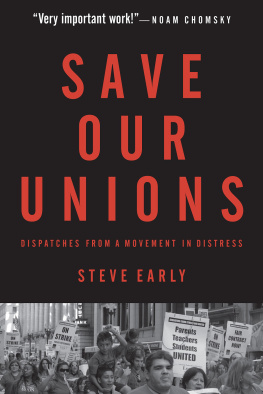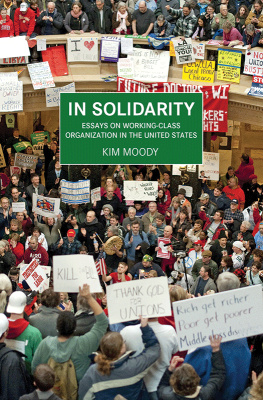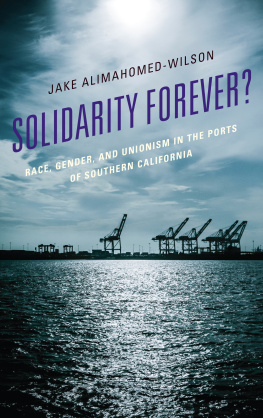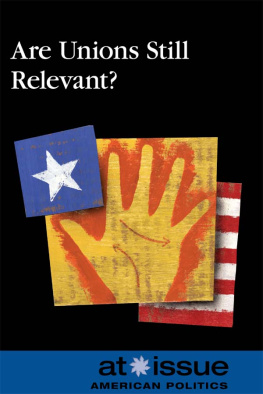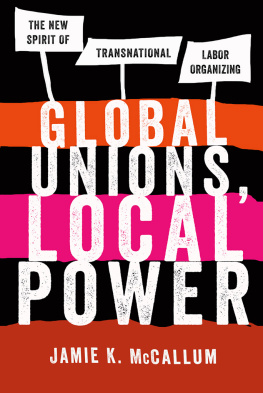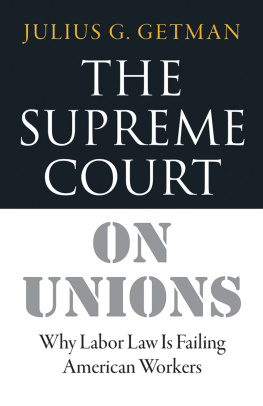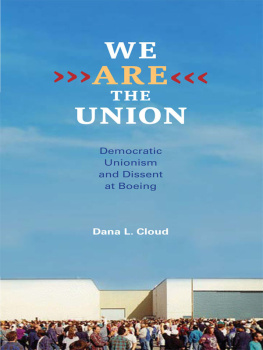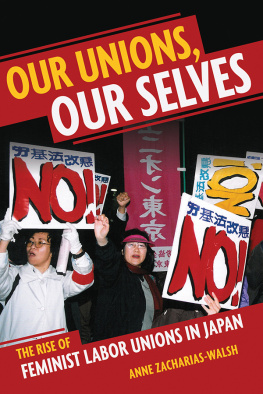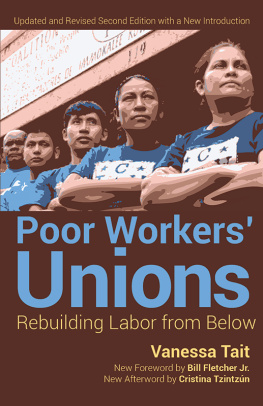Thank you for buying this ebook, published by NYU Press.
Sign up for our e-newsletters to receive information about forthcoming books, special discounts, and more!
Sign Up!
About NYU Press
A publisher of original scholarship since its founding in 1916, New York University Press Produces more than 100 new books each year, with a backlist of 3,000 titles in print. Working across the humanities and social sciences, NYU Press has award-winning lists in sociology, law, cultural and American studies, religion, American history, anthropology, politics, criminology, media and communication, literary studies, and psychology.
Praise for Save Our Unions
Its no secret that organized labor is on the ropes. Steve Early has a keen eye for where and how labor can revitalize itself by exerting its strength in strategic ways. Save Our Unions is both analytical and a battle cry. A must read for activists.
CLANCY SIGAL, author, Weekend in Dinlock, Going Away,
and Hemingway Lives!
Save Our Unions is a much-needed discussion of problems arising from the corporate-type structure of many U.S. unions. It is hard to fight this war on workers when unions behave like businesses and act like its all about the money. This book shows why we need a labor movement that represents all working people, not just a few.
NICHELE FULMORE, Teamsters Local 391 and member,
Labor Notes Policy Committee
No observer of the current labor scene writes with the cutting edge lucidity of Steve Early. His many years of experience as a national union representative make his work essential reading for anyone trying to build a new type of labor movement.
ROBERT M. SCHWARTZ, labor attorney and author,
The Legal Rights of Union Stewards
Unions once had high hopes that the Obama administration would help them resist health care cost shifting. Instead, the Affordable Care Act (ACA) is actually increasing bargaining table pressure for more medical benefit givebacks. As Steve Early documents, labor needs real health care reform and greater independence from the Democratsnow more than ever before.
DR. JILL STEIN, 2012 Green Party presidential candidate
As a past president of my local union and then leader of our state and local labor councils, I know what a challenge it is to sustain grassroots movement-building. Readers of Save Our Unions can draw inspiration and ideas from the many labor struggles described by the author. Steve Early draws on a wealth of national and local union examples, highlighting the role played by rank-and-file organizers in strikes, contract campaigns, cross-border solidarity, and new forms of political action.
DAVID NEWBY, president emeritus, Wisconsin State AFL-CIO
Steve Early has served as an inspiration to many in the younger generation of reporters now covering the labor beat for alternative media and, where its still possible, in the mainstream press. Earlys writing is not only insightful, but often witty as well, which makes for fun and informative reading.
MIKE ELK, In These Times
Steve Early is one of organized labors most astute and constructive critics, who knows which side of the class struggle hes on. Anyone wishing to better understand the troubles, often self-inflicted, of the U.S. union movement would be foolish not to read him.
SASHA LILLEY, author, Capital and Its Discontents
and host, Against the Grain, KPFA Radio
INTRODUCTIONSAVING OUR UNIONS
In the winter of 2013, when this collection was being assembled, the U.S. labor movement had just been coldcockedin Michigan of all places. How does a big midwestern industrial state go from being a bastion of blue-collar unionism to another notch in the belt of the National Right to Work Committee, right next to Oklahoma, Texas, and Alabama?
Well, the road back to open-shop conditions in the birthplace of the United Auto Workers (UAW) was paved by earlier labor setbacks in neighboring states. First Indiana, then Wisconsin and Ohio, stripped public workers of their bargaining rights (although the Republican attack on government employees in the Buckeye State was later repelled by popular referendum in the fall of 2011). Then, Indiana followed up with passage of a right-to-work law, forbidding union security clauses in private industry. In November 2012, despite spending millions, Michigan labor lost two ballot questions related to public sector bargaining rights. So the lame-duck GOP legislative assault on union security in the private sector that followed soon thereafter in Lansing should not have been a surprise, given trends in the region.
Amid the resulting political furor, even labors just reelected friend in the White House, Barack Obama, felt compelled to speak out. Obama was visiting Michigan right before GOP Governor Rick Snyder signed his states right-to-work bill into law. We should do everything we can to
Unfortunately, by this point in Obamas presidency, working for less money, with fewer job rights or benefits and little employment security, was an experience shared by millions of white-collar and blue-collar workers. Even those still lucky enough to have union contracts (just 11.3 percent of the workforce in 2012) were battered by the great Wall Street meltdown and its continuing aftershocks. When push came to shove in 20089, there was much emergency relief for those at the top of our economic pyramid and far less for the millions of wage earners and homeowners at the bottom. The latter suffered from layoffs, pay cuts, loss of home equity, and the evaporation of retirement savings. As a result, by 2013, overall employee compensationincluding health and retirement benefitsdropped to its lowest share of national income in more than 50 years while corporate profits have climbed to their highest share over that time.
Union members had more protection, of course, but only if their legal rights were not undermined by friends and foes alike. Just as President Obamas own tutorial on the politics and economics of right-to-work failed to sway Governor Snyder in Michigan, labors attempt to enlist Democrats in a vigorous defense of unionism has been less than successful. During Obamas administration, the desperate plea, Save Our Unions! fell on deaf ears among labors supposed allies in Washington and many state capitals. From New York to California, Democratic governors and other public office holders often joined the budget-cutting Republican chorus criticizing teachers and other government workers or seeking to curb their bargaining rights.

